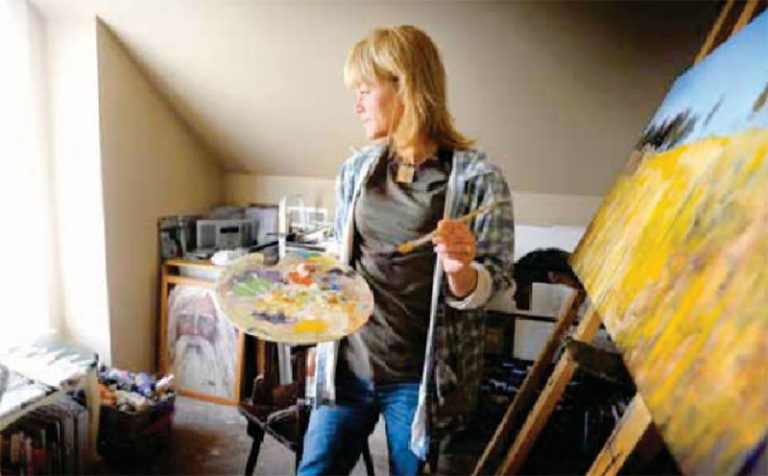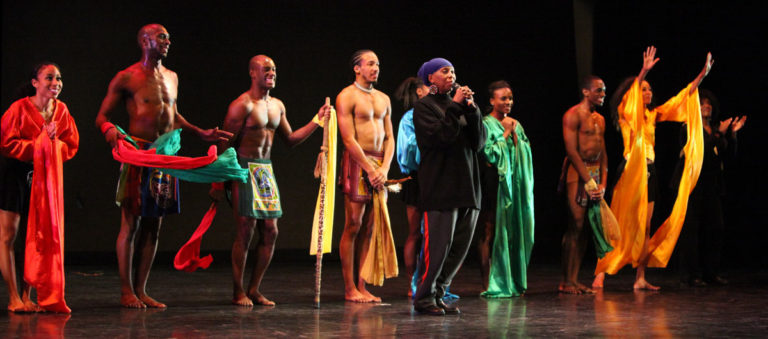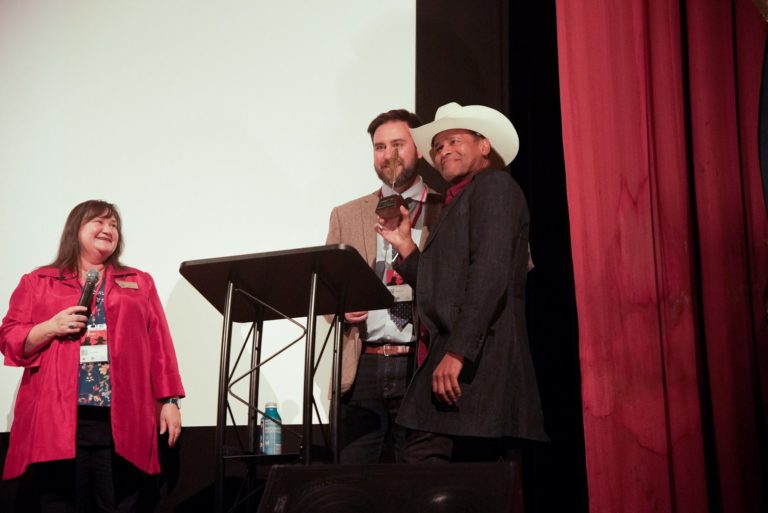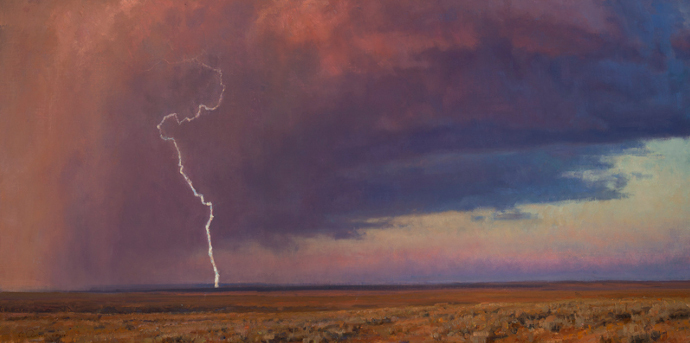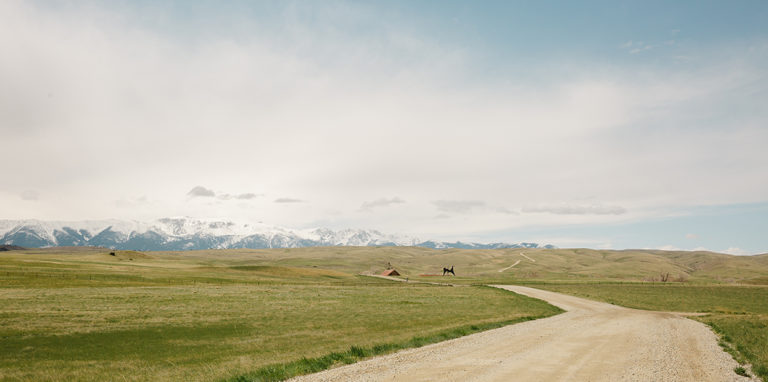Kronos Quartet
On the morning of Dec. 3, David Harrington was hailing a cab in San Francisco to take him to the recording studio. His quartet was to finish a 75-minute arrangement for strings. They spent the entirety of the previous day in the studio, and upon leaving late that night were hit with the news that 14 people had died and 22 others were wounded in a mass shooting in San Bernardino.
On the morning that followed, the collective trauma of Americans was thick, coating every aspect of interaction. There wasn’t a quiet news outlet in the country—and not a bit of understanding why this happened. Why this keeps happening. The shock and trauma of the incident had yet to be used to sharpen political battle axes. We didn’t know who. We didn’t know why. There wasn’t a way to grieve this loss. It was just real, raw, and vivid.
As Harrington went along his morning commute, we spoke of his music with Kronos Quartet and how that incident in San Bernardino affected the music he was about to make.
“What we need to do this morning is the most tender, gentle, incredibly beautiful music,” he told me. “I’m sure that the effect, the waves that occur from a tragedy like that—I’m sure that will enter the performance and the music and what we’re trying to find to communicate. I’m sure that will be a part.”
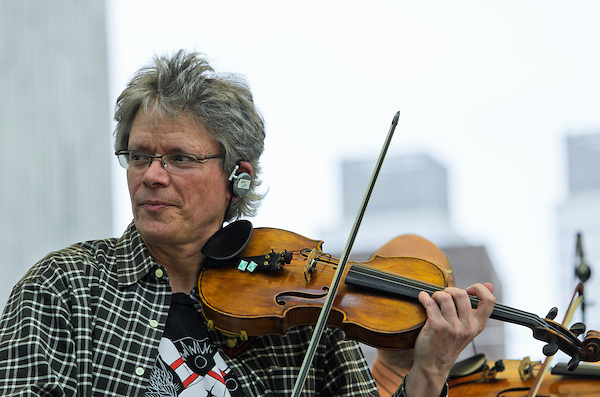
Harrington channels the energy and occurrences around him into music. In 1973, when he founded Kronos Quartet, he did so in part because of “Black Angels,” the Vietnam War–inspired work by George Crumb.
“I was looking for the right music to play—music that felt like it belonged within the context of what I was feeling, what seemed to be going on in our society and what I was seeing in the news.”
This piece continues to provide Harrington and Kronos inspiration. In late 2015, the group performed “Black Angels” on the USS Intrepid, an aircraft carrier that served three tours of duty in the Vietnam War.
“It was an astonishing experience to take that music to that place,” Harrington said. In the silence of “Black Angels” the boat—decommissioned in the Hudson River in Manhattan—creaked, its walls echoing the sound of strings.
Music has the ability to connect people through a language of sorrow, of growth, and of connection. Its universality comes from the collective sum of what we’ve learned and what we’ve experienced.
“Every note that we get to play is another opportunity,” Harrington said. “I think all of us in Kronos feel that very strongly. I know that our composers do. Every composer that has ever written for us is trying to make something that they’ve never done before. They are tying to find a new alignment, something to share that maybe they didn’t know existed within them before.”
Harrington started playing violin in public school when he was 9-years-old. At age 12, he stared his first string quartet group.
“As a kid, that’s all I wanted to do,” he said. “I’m still the same kid I was at 12.”
Harrington founded Kronos in Seattle in 1973 and moved the quartet to San Francisco in 1977. The group is composed of Harrington on violin, John Sherba (also violin), Hank Dutt on viola, and cellist Sunny Yang. The group has produced more than 50 recordings and have commissioned 800+ works.
Looking back at 43 years of making music, Harrington said the energy that he gets from music and the creative situations he’s in makes that aspect seem very natural. “Time just seems to be flying by,” he said. “It may seem like it takes a lot of energy, but I feel I get more energy than what I’m putting out. I’m the recipient of so much from other people,” he said.
Kronos is synonymous with collaboration. Working with various composers, they’re able to learn new things about music and performance. “It’s really wonderful how one thing leads to another in music,” Harrington said. “We just try to keep our imaginations free and open and ready for the next adventure.”
The quartet spends five months of each year on tour, and makes a stop in Billings tonight (Feb. 11), Big Sky tomorrow (Feb. 12), and stops in Hamilton on Sunday (Feb. 14).
“Looking over the programs that we’ve planned, it’s some of our very favorite music,” Harrington said of the Montana performances. Harrington plans to opening the programs in Montana with music by Aleksandra Vrebalov, from the Sea Ranch Songs. Vrebalov is one of the first 10 composers for Fifty for the Future: The Kronos Learning Repertoire, a series of fifty works commissioned by Kronos that will be made available to young and early-career professional string quartets.
Each of the fifty works will be a brief yet artistically complete composition. Digital versions of the scores and parts, recordings, and other materials will be offered to the public for free.
“I can’t wait to play Fodé Lassana Diabaté in Montana,” Harrington said. His piece, Sunjata’s Time, was one of the first received for Fifty for the Future project. They recorded the piece in late December, and by the time it debuts to Montana artists, it will be available to every string quartet in the world.
Among other selected works, Kronos will be performing a composition by Bryce Dessner, the Brooklyn-based composer and guitarist of The National.
“He is one of our favorites,” Harrington said. Kronos released an album on Dessner’s compositions, and is hoping to do an album of quintets with him.
Harrington is extraordinarily passionate about taking his music to the stage. “We spend a lot of our time rehearsing music and recording—things that are private,” he said, “but when you get to take the music out there for family and friends and the audience…For me the audience becomes like another instrument that basically pulls the sound out of us. The audience is absolutely essential to the music we play.”
Harrington has personal ties to Montana. His family homesteaded in Ridge, Montana. During Harrington’s last trip to Montana, he visited the family homestead and spent time in the various areas where his father grew up. As a teen in the 1930s, his father moved to Billings to attend the Billings Polytechnic Institute (today’s Rocky Mountain College campus), and in the latter part of the depression moved to Portland, where Harrington was born.
Catch them in performance tonight at Albert Bair Theater in Billings.


